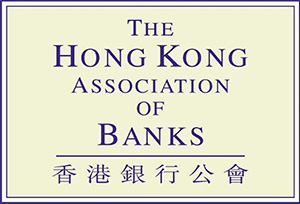Standing by SMEs in Post-Pandemic Recovery
(28th March 2024) The Hong Kong Association of Banks welcomes the nine measures announced by the Hong Kong Monetary Authority (HKMA) and the Banking Sector SME Lending Coordination Mechanism to support the small and medium enterprise sector (SMEs) in accessing finance and fostering their sustainable development.
These new measures mark another step in helping SMEs navigate challenging market conditions. Banks in Hong Kong have been steadfast in leveraging their expertise and balance sheets to support customers in Hong Kong as the recovery takes hold. They will continue to collaborate closely with the HKMA and the business community to provide comprehensive support to SMEs.
Some of the SME sector initiatives include:
- Enhanced and prompt access to financing
- Banks recognise the importance of facilitating SMEs with easier and timely access to funding. In addition to their support for the government-backed SME Financing Guarantee Scheme (SFGS), banks offer simplified loan products that do not require tangible assets as collaterals or financial statements for application. Moreover, banks have actively invested in fintech adoption and participated in the Commercial Data Interchange (CDI) and Interbank Account Data Sharing (IADS) to streamline the loan application process.
- Apart from the conventional lending options, banks have different funding programmes available, such as working capital loans, card merchant loans and trade loans. Tailored solutions, such as green and sustainable finance, are also available to support business transformation.
- Overall, the banking sector has implemented flexible and accommodating policies to evaluate customer requests on a case-by-case basis, assisting those in need in overcoming liquidity challenges through tailored repayment plans. Banks also offer special terms and promotions, such as fee waivers on account opening, below-balance and payment transactions, preferential loan rates, standard merchant discount rates and insurance premium discounts.
- Improving customer experience:
- Banks have invested heavily in providing SMEs with faster and more user-friendly digital banking solutions. These include online banking platforms, mobile banking applications, and digital payment systems, enabling SMEs to flexibly access banking services and oversee their finances and transactions.
- Through the adoption of electronic signing and verification technology, the processes of account opening and loan application have been streamlined and digitalised. Various tools are also available on digital platforms to help SMEs manage their daily operation and optimise their resources for tasks, such as payroll, shipment tracking, and requesting payments from buyers.
- To provide timely support and enhance customer experience, some banks have also established dedicated hotlines to assist SMEs with loan applications and enquiries.
- Empowering transformation and growth:
- SMEs often seek guidance to navigate complex market challenges. Banks have been providing consultancy services, workshops, seminars, and webinars to offer strategic insights on topics, such as technology adoption, environmental, social and governance (ESG) and business expansion in the Greater Bay Area.
- Networking and collaboration are key for growth and innovation. Some banks have established digital platforms for SMEs to showcase their company profiles, products and services, fostering connections and business collaborations within ecosystems.
The collective efforts to support SMEs underscore the banking industry’s commitment to driving economic growth, job creation, and societal progress.
- End -
